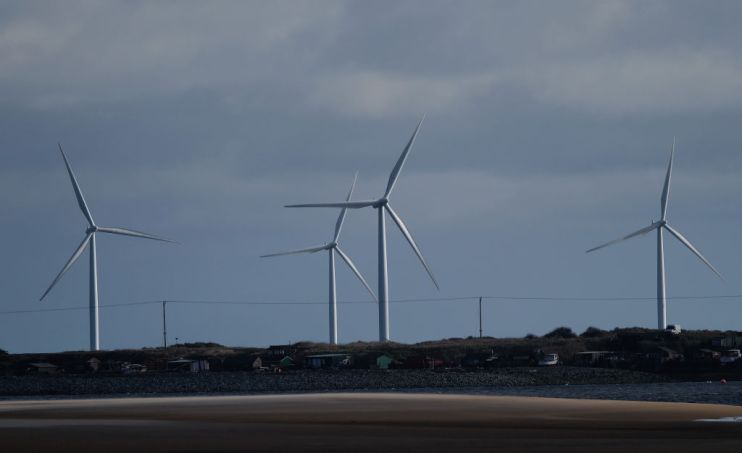SSE profit rises as energy giant ramps up net zero push

SSE today posted a rise in profit for the full year as the energy giant pushes ahead with its strategy of reaching net zero carbon emissions.
The FTSE 100 firm posted adjusted profit before tax of £1.06bn in the year to the end of March, up four per cent on the previous 12 months.
This came after investment and capital expenditure costs of £912m, lower than last year thanks to project finance development expenditure refunds of £429m.
It comes as SSE pushes ahead with its shift to renewable energy sources. The company said it was committed to its plan of spending £7.5bn on its decarbonisation efforts up to 2025.
SSE, which is a key government partner for this year’s COP26 climate summit, said that despite the impact of the pandemic its flagship green energy projects, including Seagreen, Viking and the world’s largest offshore wind farm at Dogger Bank, were progressing well.
Despite this, shares in SSE slipped a marginal 0.5 per cent.
The energy group, which sold its retail arm to rival Ovo in a £500m deal last year, has also disposed of a number of non-core assets in its contracting and rail division as it looks to focus on its core business.
The firm said it expected to begin a sale process of Scotia Gas Networks this summer, with the aim of having a deal agreed by the end of the year.
SSE raised more than £2.5bn of funding over the year, including an issue of £500m in green bonds in March. This was its fourth green bond in five years and cements its status as the largest issuer of green bonds in the FTSE 100.
The company said it would pay a final dividend of 56.6p per share, taking its total payout for the full year to 81p per share.
SSE declined to provide guidance for the full year, but said it expected the impact of Covid-19 to be restricted to the performance of its enterprise and business energy division.
“Thanks to the commitment of employees right across the business in 2020/21 we made an important contribution to the national pandemic response, delivering strong operational performance, and making significant strategic progress,” said SSE chair Sir John Manzoni.
“We have also made significant progress on our non-core disposals programme, creating value for shareholders while continuing to sharpen the group’s strategic focus on its low-carbon electricity core in networks and renewables, where our capital investment programme is progressing well.
“Looking ahead, a strong balance sheet, underpinned by world-class assets, gives us a firm footing from which to capitalise on the considerable future growth opportunities we are creating in the transition to net zero.”
John Moore, senior investment manager at Brewin Dolphin, said it was an “exciting time” for SSE as it shifted to renewable energy.
“The key debate, however, is the level of dividend payment. While investors may be pleased to see the RPI-linked increase and have the certainty of a dividend path until 2023, there is an argument that SSE should be paying a lower dividend after this date and investing more to benefit from the changing energy environment.”